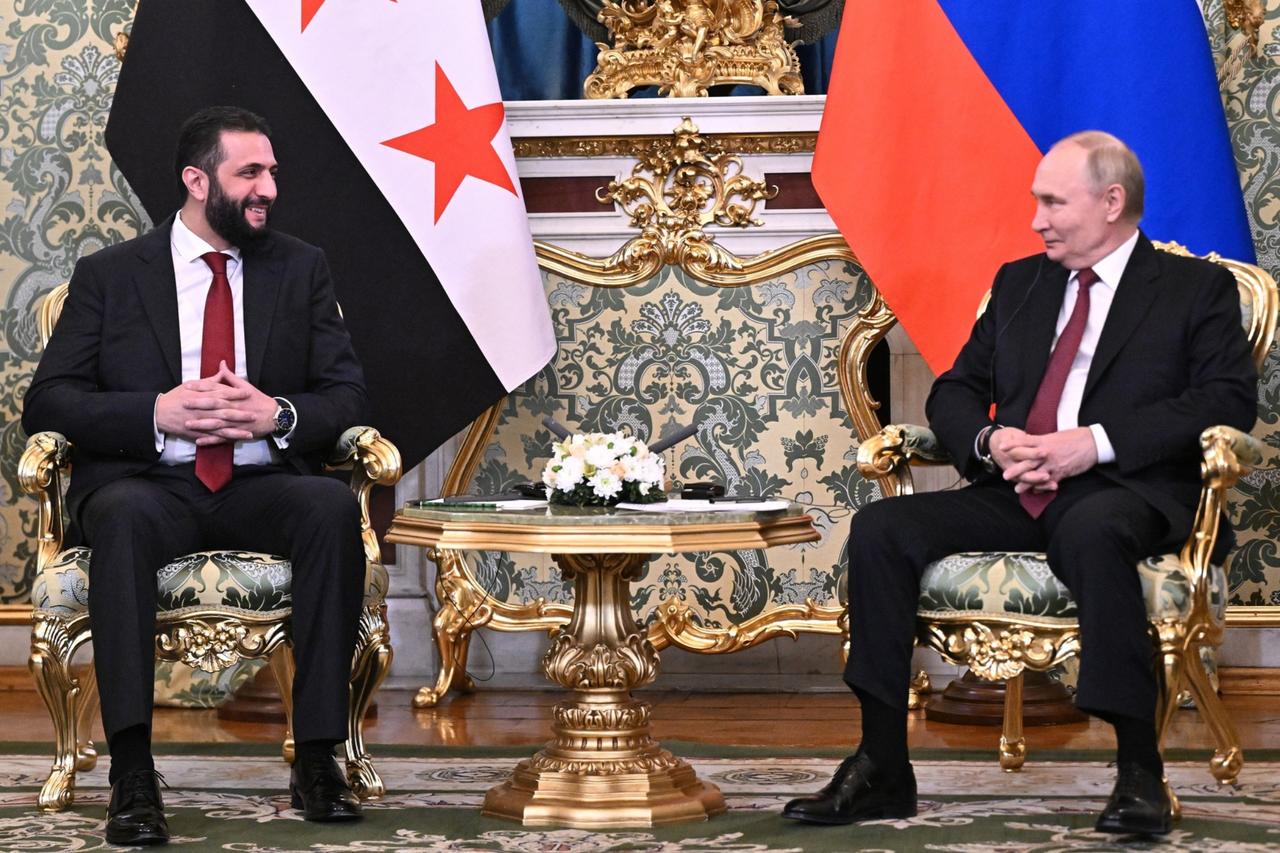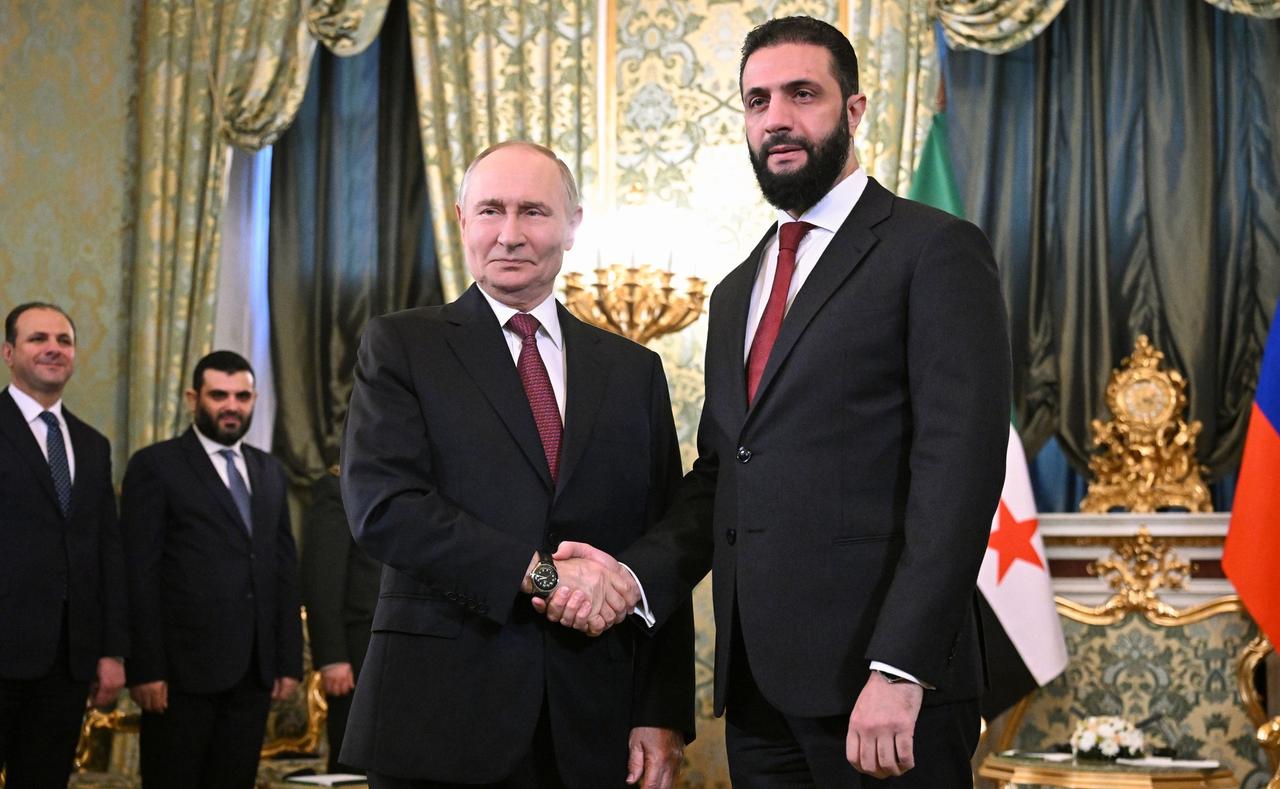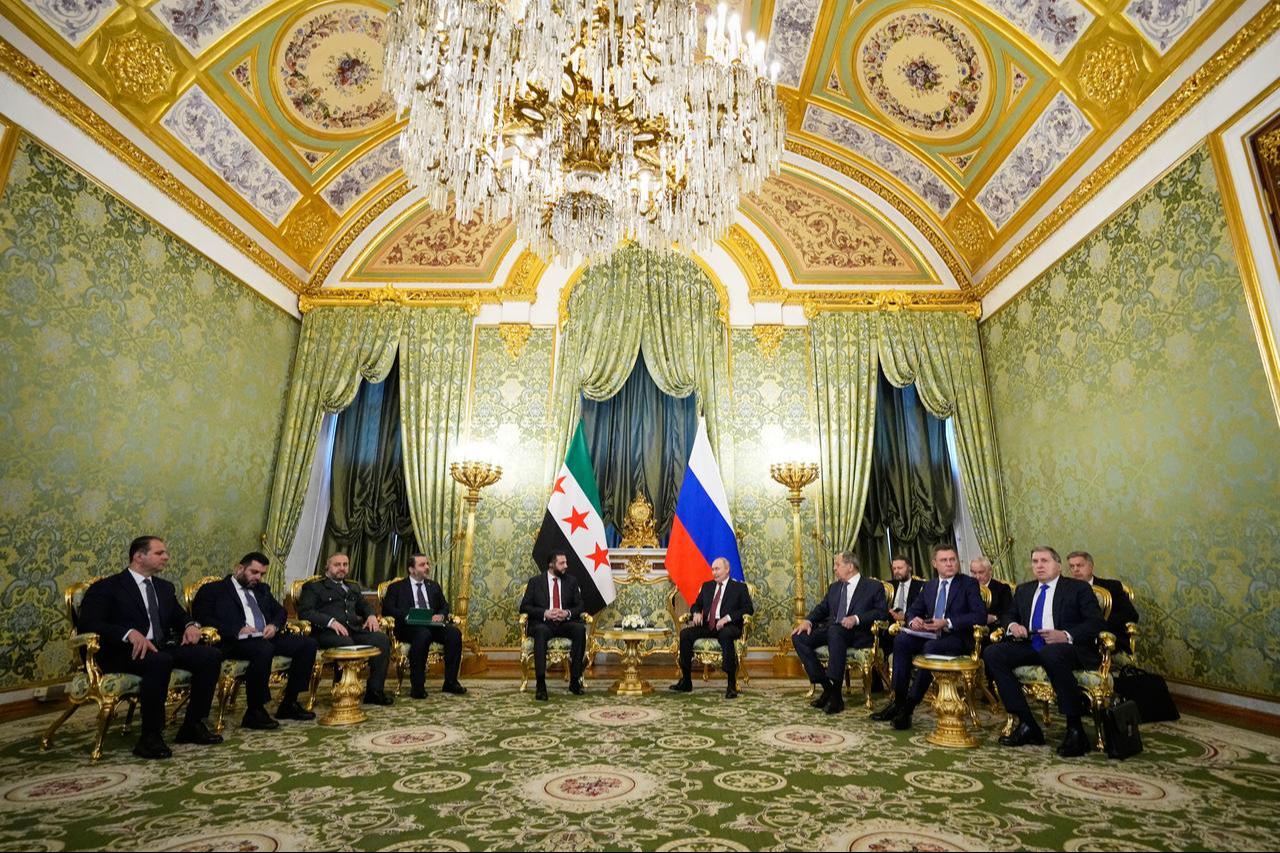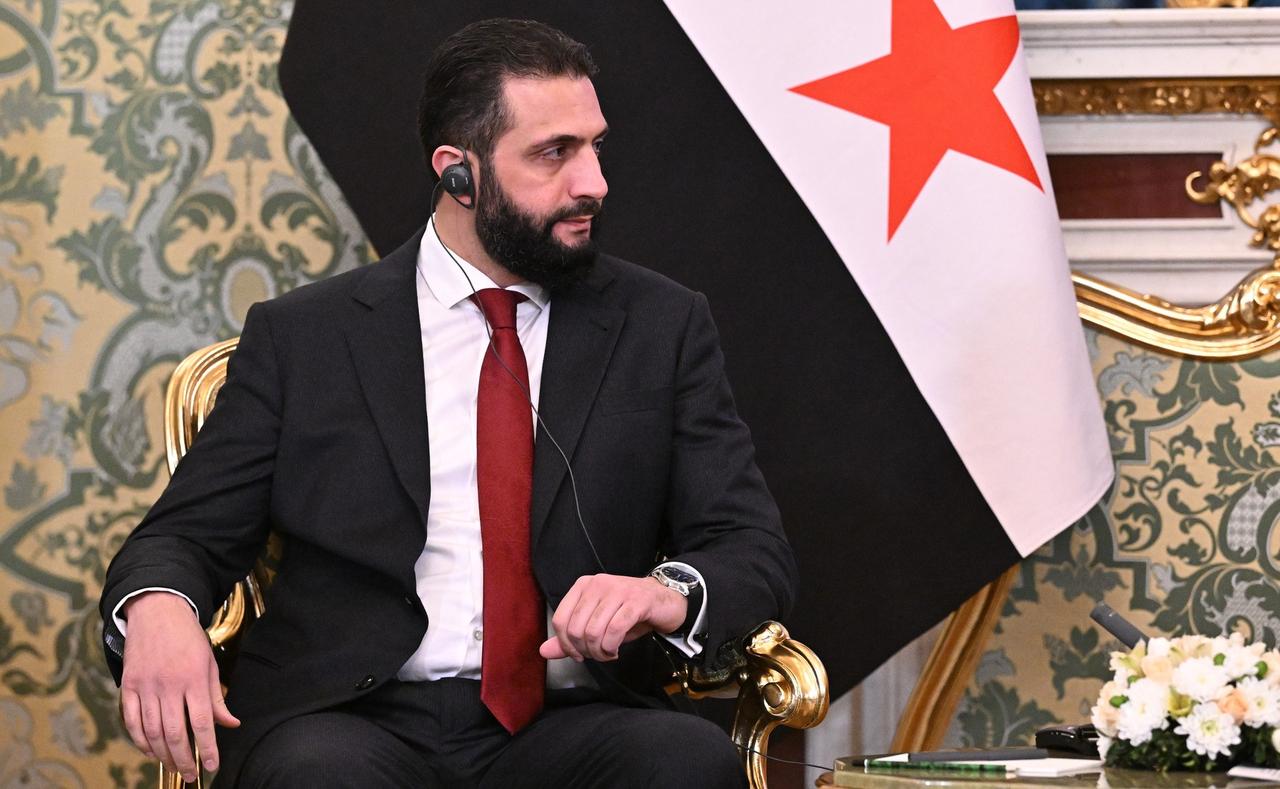
Russian President Vladimir Putin met with Syrian President Ahmed al-Sharaa in Moscow on Wednesday to discuss bilateral relations and regional stability in al-Sharaa's first official visit to Russia since assuming office.
"Over 80 years we have maintained diplomatic ties, and they were established in the most difficult times for Russia, for the Soviet Union, in 1944," Putin said during the meeting at the Kremlin Palace.
"During this time, relations between Syria and Russia have always been exclusively friendly," he added.
Putin emphasized that Russia has always been guided by the interests of the Syrian people in its relations with Damascus.
"In Russia, we have never had any relations with Syria connected with our political circumstances or special interests. Throughout all these decades, we have always been guided by one thing - the interests of the Syrian people," Putin said.

Putin called Syria's recent parliamentary elections a great success and said the vote will lead to the consolidation of society.
"I believe this is your great success because it leads to the consolidation of society. And despite the fact that Syria is currently going through difficult times, this will nevertheless strengthen ties and interaction between all political forces in Syria," Putin said.
The Russian president noted that more than 4,000 young Syrians are studying at higher education institutions in Russia. "I very much hope that in the future they will make a significant contribution to the development and strengthening of Syrian statehood," Putin said.
Putin said Russia and Syria have deep ties, noting that hundreds, or perhaps thousands, of people are connected by marriage and friendship.
Putin said the Russia-Syria intergovernmental commission has existed since 1993 and is now resuming work. He thanked Sharaa for receiving a delegation headed by Russian Deputy Prime Minister Alexander Novak.
"Many interesting and useful initiatives were identified there. We, for our part, are prepared to do everything possible to implement them, as well as to maintain regular contacts and consultations through the Ministry of Foreign Affairs," Putin said.
The Russian delegation included Foreign Minister Sergey Lavrov, Deputy Prime Minister Alexander Novak and Kremlin Foreign Policy Adviser Yury Ushakov.
The Syrian delegation included Foreign Minister Asaad Hassan al-Shaybani, Defense Minister Murhaf Abu Qasra, Intelligence Chief Hussein al-Salama and Presidential Secretary General Maher Sharaa.

Sharaa said Syria has truly deep historical ties with Russia and emphasized the existence of a new Syria.
"We are presenting this new Syria to the world and the world is beginning to recognize the new Syria," al-Sharaa said.
"We understand that we are connected with Russia by historical ties and that Russia will play an important role in this process (of developing political goal)," Sharaa said.
"We are also building on many achievements that Russia has provided us. Russia has helped us in various areas, we are connected to each other by important bridges of cooperation, including material cooperation," he added.
Sharaa said Syria will continue working with Russia and will make efforts to renew comprehensive relations.
"The most important thing now, of course, is stability, both in the country and in the region," Sharaa said.
A day before his visit, Sharaa told CBS News that Syria is building calm relations with Moscow and Beijing based on strategic interests and that partners have sent positive signals to Damascus. Contacts with Russia and China do not contradict ties with the West or the United States, he said.
Sharaa also said in the joint press conference that Syria respects all past agreements and the great history with Russia.
"We have close relations with Russia, and a large part of Syria's energy sector depends on Russian expertise," Sharaa said.

Syria's government changed in 2024. In late November, armed opposition groups began an offensive against army positions, captured Aleppo, the country's second-largest city, and entered Damascus in December. Bashar al-Assad resigned as president and left the country.
At the end of January, Ahmed al-Sharaa was declared head of state for the transitional period. His meeting with Putin marked the first in-person contact between the two sides at the highest level.
Russia granted asylum to Assad and his family following his ouster. The Kremlin said asylum was provided on humanitarian grounds.